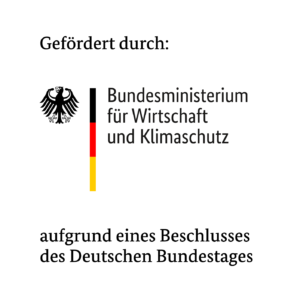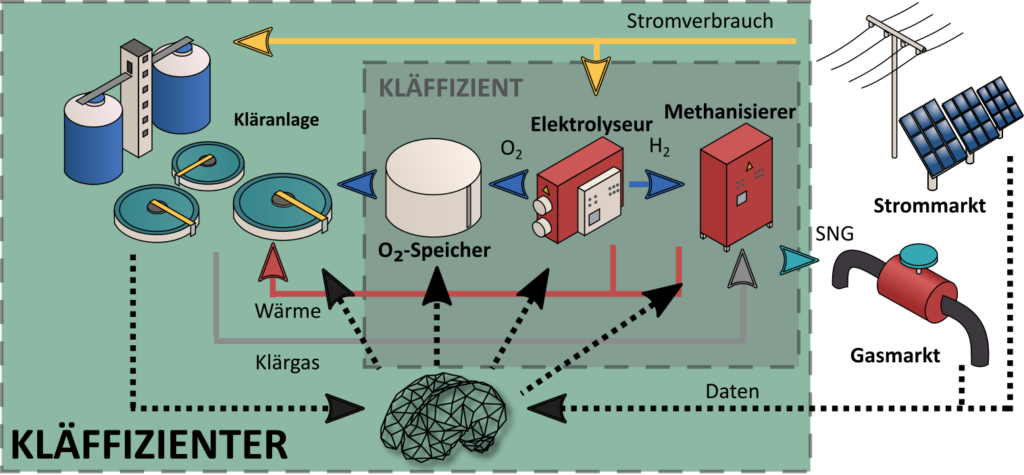BMWK project: KLÄFFIZIENTER
BMWK project: KLÄFFIZIENTER – Optimisation of catalytic direct methanation at wastewater treatment plants to store energy and increase plant efficiency
The BMWK project ‘KLÄFFIZIENTER’ (‘even more sewage efficient’) researches and implements measures that support wastewater treatment plants on their way to energy neutrality, while at the same time they can contribute to the provision of renewable gases through an intelligent, deeply integrated methanation unit to secure heat and power supply and optimise the production of biomethane.
Support Code: 03El5477A
Term: 01.10.2024 – 30.09.2027

Projektträger Jülich

Federal Ministry for Economic Affairs and Climate Action (BMWK)
8. Energieforschungsprogramm zur angewandten Energieforschung – Forschungsmissionen für die Energiewende
The KLÄFFIZIENTER project aims to support wastewater treatment plants on their way to energy neutrality and at the same time contribute to the provision of renewable gases. This is to be achieved through an intelligent and integrated linking of sewage treatment plant processes with a catalytic direct methanisation plant. By converting CO2 from sewage gas into methane using hydrogen, the aim is to ensure an energy supply that provides both heat and electricity for sewage treatment plant operations. Unlike the previous project, the project also uses a modular, scalable sewage treatment plant model to optimise energy flows and operating strategies, which can be flexibly adapted to different sewage treatment plant sizes. The aim is to exploit the great potential of wastewater treatment plants in a scalable manner for biomethane production, which at the same time contributes to stabilising the energy system.
As part of the project, both simulation-based and experimental investigations will be carried out to demonstrate the technical feasibility and efficiency of the system. A demonstration reactor is to be installed in a wastewater treatment plant to test the interaction of energy production, methanation and energy utilisation in real operating conditions. The innovative control concept uses AI-based algorithms to ensure optimal operation of the wastewater treatment plant and maximise synergy effects, such as the use of oxygen from electrolysis. The project thus contributes to reducing greenhouse gas emissions and increasing the energy independence of wastewater treatment plants.

Ansprechpartner:
Department of Chemical and Biological EngineeringJonas Miederer, M. Sc.
Lehrstuhl für Energieverfahrenstechnik
Department of Chemical and Biological EngineeringConstantin Heim, M. Sc.
Lehrstuhl für Energieverfahrenstechnik



